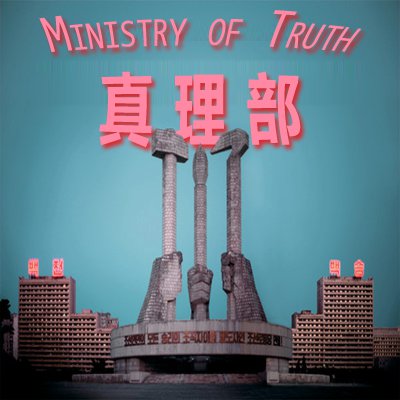This series is a month-by-month recap of censorship instructions issued to the media by government authorities in 2017, and then leaked and distributed online. The names of issuing bodies have been omitted to protect sources.
March saw the "Two Sessions" of the advisory Chinese People’s Political Consultative Conference and legislative National People’s Congress. Besides showcasing official policies and priorities, the annual gatherings offer a chance for delegates to voice less orthodox opinions and recommendations. As Amnesty International’s Joshua Rosenzweig told The Financial Times last year, "to the extent that the Two Meetings have any importance, it’s as a moment where the bounds of free expression and reporting become more elastic,” at least for official attendees. “If you’re left with few other options, this is the one chance you get."
In 2016, that meant calls—swiftly rebuffed by public security organs—for an end to televised confessions and steps to prevent abuses of prisoners in pre-trial detention. This year, CPPCC vice-chair Luo Fuhe proposed relaxation and formalization of China’s strict controls on access to foreign websites in order to boost scientific progress and economic development. A subsequent directive ordered "all websites, [to] please find and delete reports and posts on Luo Fuhe’s ‘Proposal to Improve and Increase Speed of Access to Foreign Websites’ as soon as possible."
Luo’s proposal, translated in full by CDT, highlighted several examples of the so-called Great Firewall’s "enormous impact on China’s social and economic development, and on scientific research."
While we agree that the monitoring and blocking of foreign websites cannot be neglected as part of government efforts to protect the nation’s peace and stability, we must also note that many foreign sites are not political, such as common websites for research, education, news, etc. In the interest of domestic scientific research, these foreign sites are a preferred source for obtaining the latest and most accurate information. If these sources cannot be accessed smoothly, the accuracy and timeliness of studies cannot be guaranteed. At present, there are many influential foreign news channels among the sites that have been checked and blocked, sites that are key for both retrieving and publishing information. It is worth debating the fact that all of this information is cut off simply because some of it is contested.
[…] Establish an authoritative list of negative foreign sites. Websites that contain content in violation of the “Regulation on Internet Information Service Management,” and “Regulation on Telecommunications of the PRC,” and other relevant laws and regulations should be on the list; they need to be strictly regulated and blocked from access; regarding non-political websites, especially foreign university and research sites frequently visited by expert researchers and scholars, lift access restrictions and inspect them regularly; regarding neutral websites including search engines, news, technology, etc., filter sensitive content and carry out regular inspections in order to increase the efficiency of utilizing foreign internet resources. At the same time, websites with content that varies from page to page should be treated differently. Narrow down the negative list to specific webpages for more precise control over content access. [Source]
Internet controls and VPN restrictions seem only to have tightened over the course of the year, with tech firms including Apple recruited to enforce them and continuing impact on the business and science sectors. Some accommodation of Luo’s concerns may still materialize, however, with special access granted to companies and researchers subject to official approval and monitoring.
Another directive, issued on March 2, ordered the closure of comments on a report about a senior Tianjin official’s sleeping pill overdose and subsequent hospitalization. The incident followed news of a corruption investigation into the city’s former mayor and Party chief Huang Xingguo.
 Since directives are sometimes communicated orally to journalists and editors, who then leak them online, the wording published here may not be exact. Some instructions are issued by local authorities or to specific sectors, and may not apply universally across China. The date given may indicate when the directive was leaked, rather than when it was issued. CDT does its utmost to verify dates and wording, but also takes precautions to protect the source. See CDT’s collection of Directives from the Ministry of Truth since 2011.
Since directives are sometimes communicated orally to journalists and editors, who then leak them online, the wording published here may not be exact. Some instructions are issued by local authorities or to specific sectors, and may not apply universally across China. The date given may indicate when the directive was leaked, rather than when it was issued. CDT does its utmost to verify dates and wording, but also takes precautions to protect the source. See CDT’s collection of Directives from the Ministry of Truth since 2011.







